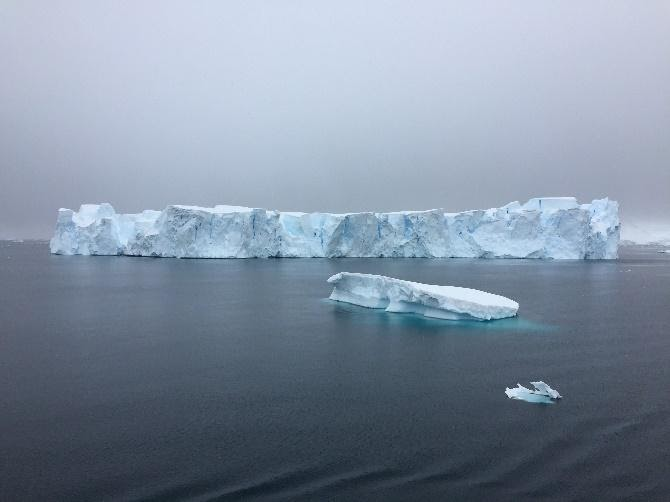
A slow moving river of solid ice is called ?
Answer
521.7k+ views
Hint: Water exists in three states, solid, liquid and gaseous form. The solid form is generally called ice. Our Earth consists of several water bodies. Some of the water bodies consist of fresh water. The water that flows freely and has fresh water is called the River. The density of water varies from one water body to another and many factors influence that.
Complete solution:
As discussed, the rivers are free flowing water bodies. But what does the river with floating ice called as? Why is it formed, where is it and what are the causes for it? Let’s discuss now.
So there is a continent called Antarctica where there is only ice and some amount of cold water streams. So the mountains are also made up of huge ice blocks. Surrounding Antarctica, there is an ocean called “Antarctic Ocean '' full of cold water where glaciers are abundantly found though present in different parts of the world. The huge ice blocks and the snow that forms during winter slowly melts down during the summer. When there is no place to go, they join the streams of water, further increasing the melt down. When this ice melts, it does not melt at once instead, it melts part by part and starts floating on water moving slowly. This appears to be forming a river of ice. This slow moving river of solid ice is called “Glacier ''.

Note:
Glaciers are of two types- Alpine glaciers, ice sheets. Alpine glaciers are mostly formed from the ice mountains and slowly melt and move through the down valleys. Ice sheets, on the other hand, form from built up snow, stretches like a sheet of water for hundreds of square kilometers and hence the name ice sheets.
Complete solution:
As discussed, the rivers are free flowing water bodies. But what does the river with floating ice called as? Why is it formed, where is it and what are the causes for it? Let’s discuss now.
So there is a continent called Antarctica where there is only ice and some amount of cold water streams. So the mountains are also made up of huge ice blocks. Surrounding Antarctica, there is an ocean called “Antarctic Ocean '' full of cold water where glaciers are abundantly found though present in different parts of the world. The huge ice blocks and the snow that forms during winter slowly melts down during the summer. When there is no place to go, they join the streams of water, further increasing the melt down. When this ice melts, it does not melt at once instead, it melts part by part and starts floating on water moving slowly. This appears to be forming a river of ice. This slow moving river of solid ice is called “Glacier ''.

Note:
Glaciers are of two types- Alpine glaciers, ice sheets. Alpine glaciers are mostly formed from the ice mountains and slowly melt and move through the down valleys. Ice sheets, on the other hand, form from built up snow, stretches like a sheet of water for hundreds of square kilometers and hence the name ice sheets.
Recently Updated Pages
Master Class 12 Economics: Engaging Questions & Answers for Success

Master Class 12 Physics: Engaging Questions & Answers for Success

Master Class 12 English: Engaging Questions & Answers for Success

Master Class 12 Social Science: Engaging Questions & Answers for Success

Master Class 12 Maths: Engaging Questions & Answers for Success

Master Class 12 Business Studies: Engaging Questions & Answers for Success

Trending doubts
Which are the Top 10 Largest Countries of the World?

What are the major means of transport Explain each class 12 social science CBSE

Draw a labelled sketch of the human eye class 12 physics CBSE

Why cannot DNA pass through cell membranes class 12 biology CBSE

Differentiate between insitu conservation and exsitu class 12 biology CBSE

Draw a neat and well labeled diagram of TS of ovary class 12 biology CBSE




